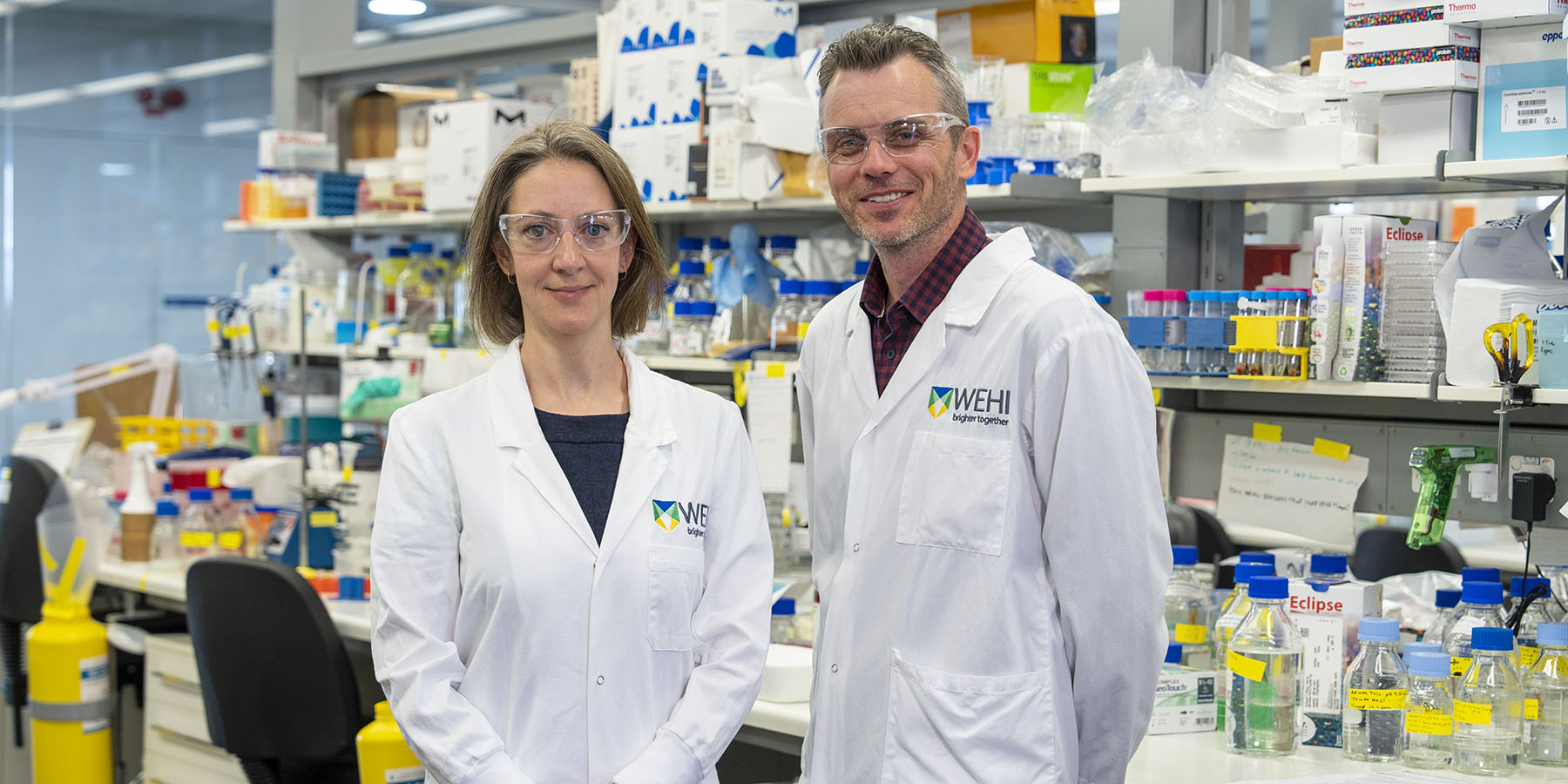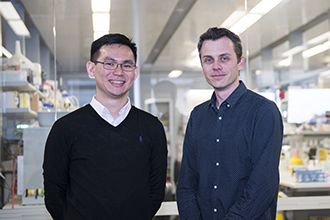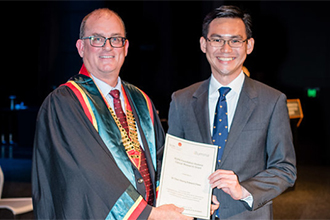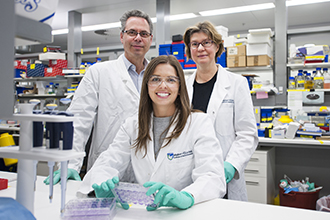Xu Z, Flensburg C, Bilardi RA, Majewski IJ. Uridine–cytidine kinase 2 potentiates the mutagenic influence of the antiviral β-d-N4-hydroxycytidine. Nucleic Acids Research. 2023;51(22):10.1093/nar/gkad1002
Chua CC, Anstee N, Flensburg C, Teh C, Ivey A, Amin N, Thijssen R, Bohlander SK, Kakadia PM, Xu Z, Fong CY, Ting S, Loo S, Tiong IS, Gray D, Fleming S, Davidson N, Roberts AW, Majewski I, Wei AH, Brown FC. Venetoclax Has Potent Efficacy in NPM1 mutated AML with Acquired Resistance Associated with Either Perturbed Pro-Survival Signalling or NPM1 wild-Type Populations. Blood. 2023;142(Supplement 1):10.1182/blood-2023-185321
Abdulla HD, Alserihi R, Flensburg C, Abeysekera W, Luo M-X, Gray DHD, Liu X, Smyth GK, Alexander WS, Majewski IJ, McCormack MP. Overexpression of Lmo2 initiates T-lymphoblastic leukemia via impaired thymocyte competition. Journal of Experimental Medicine. 2023;220(6):10.1084/jem.20212383
Thijssen R, Tian L, Anderson MA, Flensburg C, Jarratt A, Garnham AL, Jabbari JS, Peng H, Lew TE, Teh CE, Gouil Q, Georgiou A, Tan T, Djajawi TM, Tam CS, Seymour JF, Blombery P, Gray DHD, Majewski IJ, Ritchie ME, Roberts AW, Huang DCS. Single-cell multiomics reveal the scale of multi-layered adaptations enabling CLL relapse during venetoclax therapy. Blood. 2022;140(20):10.1182/blood.2022016040
Fang H, Yan HHN, Bilardi RA, Flensburg C, Yang H, Barbour JA, Siu HC, Turski M, Chew E, Xu Z, Lam ST, Sharma R, Xu M, Li J, Ip HW, Cheung CYM, Huen MSY, Sweet-Cordero EA, Majewski IJ, Leung SY, Wong JWH. Ganciclovir-induced mutations are present in a diverse spectrum of post-transplant malignancies. Genome Medicine. 2022;14(1):10.1186/s13073-022-01131-w
Schmidt B, Brown LM, Ryland GL, Lonsdale A, Kosasih HJ, Ludlow LE, Majewski IJ, Blombery P, Ekert PG, Davidson NM, Oshlack A. ALLSorts: a RNA-Seq subtype classifier for B-Cell Acute Lymphoblastic Leukemia.Blood Advances. 2022;6(14):10.1182/bloodadvances.2021005894
Thijssen R, Tian L, Flensburg C, Anderson MA, Jarratt A, Peng H, Majewski I, Tam C, Seymour J, Blombery P, Ritchie M, Huang D, Roberts A. S140: SINGLE‐CELL MULTIOMICS ANALYSES REVEAL COMPLEX INTRA‐PATIENT HETEROGENEITY IN RELAPSED CLL FOLLOWING VENETOCLAX THERAPY. HemaSphere. 2022;6:10.1097/01.hs9.0000843452.53281.c8
Palles C, West HD, Chew E, Galavotti S, Flensburg C, Grolleman JE, Jansen EAM, Curley H, Chegwidden L, Arbe-Barnes EH, Lander N, Truscott R, Pagan J, Bajel A, Sherwood K, Martin L, Thomas H, Georgiou D, Fostira F, Goldberg Y, Adams DJ, van der Biezen SAM, Christie M, Clendenning M, Thomas LE, Deltas C, Dimovski AJ, Dymerska D, Lubinski J, Mahmood K, van der Post RS, Sanders M, Weitz J, Taylor JC, Turnbull C, Vreede L, van Wezel T, Whalley C, Arnedo-Pac C, Caravagna G, Cross W, Chubb D, Frangou A, Gruber AJ, Kinnersley B, Noyvert B, Church D, Graham T, Houlston R, Lopez-Bigas N, Sottoriva A, Wedge D, Consortium GER, Consortium TC, Consortium W, Jenkins MA, Kuiper RP, Roberts AW, Cheadle JP, Ligtenberg MJL, Hoogerbrugge N, Koelzer VH, Rivas AD, Winship IM, Ponte CR, Buchanan DD, Power DG, Green A, Tomlinson IPM, Sampson JR, Majewski IJ, de Voer RM. Germline MBD4 deficiency causes a multi-tumor predisposition syndrome. American Journal of Human Genetics. 2022;109(5):10.1016/j.ajhg.2022.03.018
Flensburg C, Oshlack A, Majewski IJ. Detecting copy number alterations in RNA-Seq using SuperFreq. Bioinformatics. 2021;37(22):10.1093/bioinformatics/btab440
Tian L, Jabbari JS, Thijssen R, Gouil Q, Amarasinghe SL, Voogd O, Kariyawasam H, Du MRM, Schuster J, Wang C, Su S, Dong X, Law CW, Lucattini A, Prawer YDJ, Collar-Fernández C, Chung JD, Naim T, Chan A, Ly CH, Lynch GS, Ryall JG, Anttila CJA, Peng H, Anderson MA, Flensburg C, Majewski I, Roberts AW, Huang DCS, Clark MB, Ritchie ME. Comprehensive characterization of single-cell full-length isoforms in human and mouse with long-read sequencing. Genome Biology. 2021;22(1):10.1186/s13059-021-02525-6






